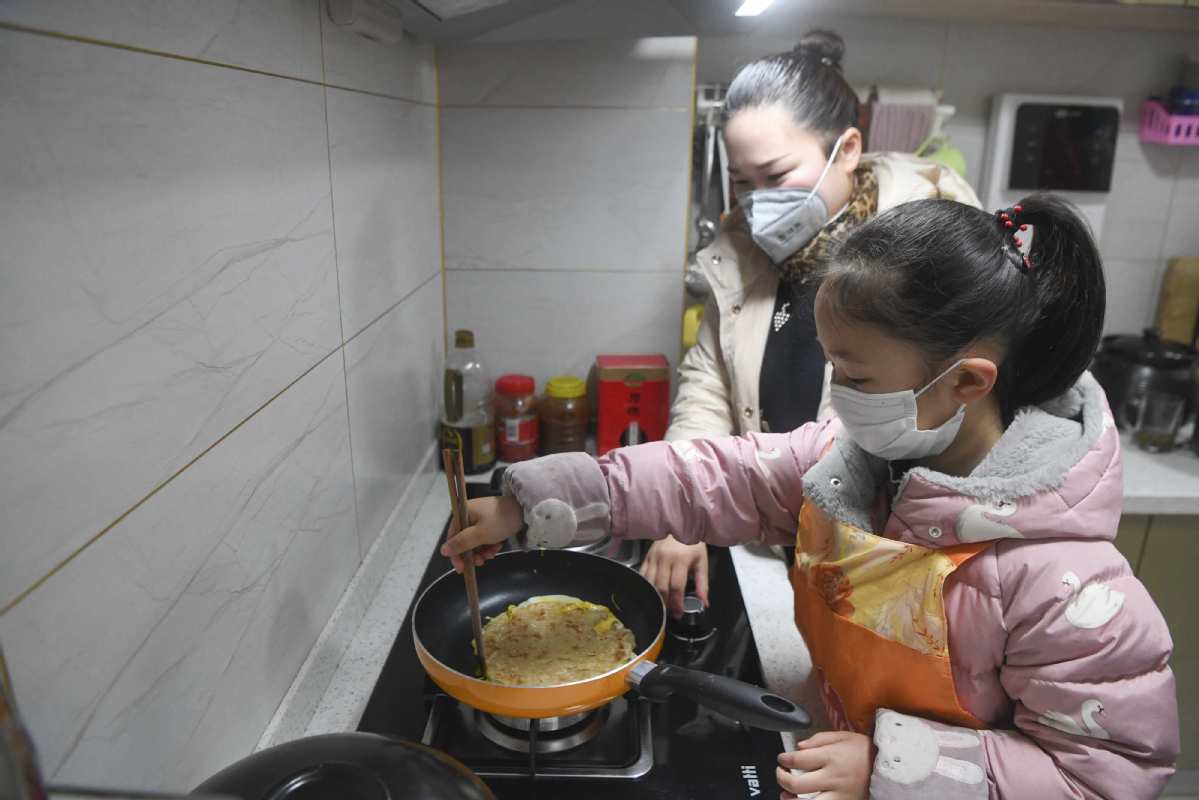Mobile apps in the house provide fun indoors


"We hope to help those eating at home eat better," Wang said. "We found people like baking during the epidemic. They take out the electric oven that hasn't been used for a long period of time and bake bread and cakes together with their children."
He added users are also willing to upload photos of food they made to the platform and share their feelings about cooking. "A group of users can feel the happiness in the process of cooking."
Online sales of daily necessities and fresh food have likewise witnessed robust growth.
JD Daojia, the local on-demand retail platform of Dada Group, said overall sales revenue increased 374 percent year-on-year during the Lunar New Year holiday.
The consumption of meat, vegetables and fruit jumped 710 percent, 440 percent and 380 percent, respectively, compared with the same period last year.
Data from app tracker Analysys Qianfan showed that in January, monthly active users of mobile apps from the whole network reached 1.02 billion, a slight increase from the previous month. The daily average usage period rose by 1.5 percent month-on-month to 6.15 hours.
Sun Mengzi, a senior analyst at Beijing-based market consultancy Analysys, said the epidemic forced app firms to improve their operations. Facing soaring orders, fresh food e-commerce platforms needed to boost the supply capacity of its support chain so customers can get their orders on time.
"With rapidly increasing traffic, mobile app companies should think of how to maintain customers when the epidemic ends. When the app is not a 'must have', app operators should improve their technology, content, products and services to enhance user experience and hold onto their users," she said.
Industry experts noted that due to less online shopping demand and inadequate delivery and production logistics, the e-shopping sector would ordinarily have entered an off-season during the Spring Festival.
However, the buying activities of shoppers shifted to online platforms during the outbreak. E-commerce platforms that deliver fresh produce were favored and their monthly active users generally witnessed an increase from December as shoppers refrained from frequenting brick-and-mortar supermarkets.
According to Analysys Qianfan, during the Spring Festival holiday, home delivery orders on Wumart's Dmall digital platform jumped 95.3 percent on a yearly basis, with sales volume soaring 225.7 percent year-on-year. The transaction volume of online fresh food platform Missfresh surged 350 percent year-on-year.
As many people chose to watch TV series to kill time, integrated video platforms saw significant increases in user watching time. Short video apps such as Tencent Weishi and Douyin also boomed, with MAUs surging 34.7 percent and 26.6 percent month-on-month, respectively.
Interestingly, according to Analysys Qianfan, many newly emerged users were not the mobile apps' target group.
"The epidemic has attracted new groups of consumers, such as elderly people, which originally didn't belong to target user groups. App runners should launch improved versions to better suit new groups.
"For example, video platforms can issue underage versions to monitor users' watching behavior, while fresh produce e-commerce platforms can offer online vegetable promotions to attract the elderly," Sun of Analysis said.
She added that app firms need to have a precise user portrait of their consumers, analyze what they need and try to take advantage. "Opportunities are left for those who are prepared," she said.




































